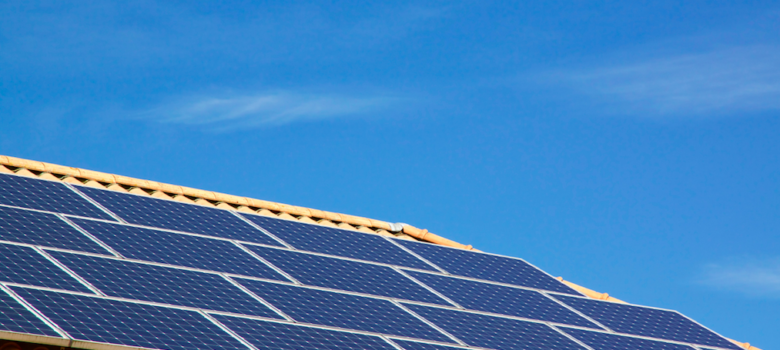
Now, this year you may have heard many stories about solar panels, battery storage systems and smart meters; but are any of those technologies really going to make the key difference in you or me being able to live fully off-grid?
For someone to live truly off the grid, they need access to water, electricity and a fuel for heating. You can use electricity to power a property’s heating, but if you had access to wood, in theory that could be used with a log burner and biomass boiler for this need.
Headline-grabbing technologies for off-grid living
In 2016, we saw some phenomenal headlines in the news about some micro renewable forms of energy generation for the home environment. We heard more than ever before about solar thermophotovoltaic technology, battery storage, solar PV tiles and even about micro nukes – which supposedly use nuclear fission on a small scale and can be installed in the back of your garden.
This blog takes into account some of the noisy headlines about up-and-coming technologies such as these mentioned. It also uses a bit of crystal ball approach to look out for ideas on the horizon to appraise whether living off grid is finally a realistic proposition.
Access to water shouldn’t be a problem for living off the grid in 2017
Let’s be honest, in Britain, it rains quite a lot. Whilst hydrologists claim that some parts of the country are faced with shortages of water, in reality this shouldn’t be a problem in most parts of the country.
 What do I need to have to access water off-grid?
What do I need to have to access water off-grid?
Essentially, you can provide your home with a private water supply, and the first step is to get your hands on a hydro-geology report that will tell you how deep you will have to drill in your local area. You can hire out a private borehole contractor who will use a specialist machine to dig into the ground until they reach the water table or ground water and through into the aquifers.
Once the digger hits the aquifer the borehole must be lined. This must be followed by the installation of a filtration system and then a pump. If you plan to bring the water indoors it must be tested and deemed safe for use for drinking and domestic purposes.
So, that’s how you get water off-grid.
How can I dispose of household waste off-grid?
You should easily be able to deal with household waste – both brown and black water – by digging yourself a septic tank. The tank must be properly lined, so that no chemicals from domestic disposal penetrate the groundwater and pollute the local streams and local rivers and ecosystems.
You then need to have to hire a private extraction company to dispose of black water from time to time.
Access to renewable forms of heating in 2017 to help with living off-grid
You can certainly install a biomass boiler or log burner with a back boiler to help with your heating requirements. Your biomass boiler could burn recycled wood chippings, pellets or logs to heat the property and provide your hot water.
The heat pump option is also available and could be tied up quite nicely with your borehole where you can have your water source heat pump installed. The only issue is that your compressor will need to be powered by electricity, which we will get to in a minute.
The air source heat pump and the ground source heat pump all have compressors and need a degree of electricity to compress the differentials in temperature captured to further help the heating process.
If the off-grid electricity issue could be resolved (which up to now was a bit of a challenge), then you could also have your off-grid heating solution sorted.
Access to off-grid electricity in 2017 – is it possible to finally meet 100% of my needs?
The issue with off-grid sources of energy generation used to create electricity have always suffered with quite a lot of the intermittency issues. For example, solar PV is only effective when there is sunlight, and in the UK, this is only effective during the months of April to September. During the rest of the year, very little electricity is generated by solar PV. A 3kW solar array is only up to 30% efficient, and the technology needs to come on a bit to be able to produce more effective power per Watt/m2.
Likewise, if you happen to have wind turbines in your garden you may have noticed that they only really work when it is windy, and often it’s windiest at night when there is very little need for electricity. So, there is a perceived lack of ability to be able to generate enough off-grid/renewable energy to be able to fully power your home (unless you use diesel generators, which would not only be expensive to run but very bad for the environment).
In addition to the generation side, you need a consistent and uninterrupted supply of electricity to power all your needs in an off-grid environment; therefore you will need battery storage. You will need quite a big battery storage unit to be able to store all the electricity necessary for your household.
For many years, battery storage for renewables was too expensive, and only an option for those who had quite a bit of disposable income. Battery storage, with the noise made by Tesla, Victron and others, has recently come down in price, and it is going to become more feasible to have a good consistent supply of electricity without having to rely on the grid.
However, despite coming down somewhat it is still adding at least 50% more to the overall cost of the renewable system. Also, one battery with about 5kW of stored power is still not enough to power all your needs. Therefore, consumers are finding they need double or triple this storage amount per day to do all the cooking, cleaning and run other appliances.
What is the final verdict on off-grid living in 2017?
While water and heating supply can work somewhat, the ability to self-generate electricity and store it in a sustainable way is still not feasible for 100% off-grid living. You can certainly install 100 solar PV panels and 10 wind turbines with 10 battery units, to potentially make it 100% off-grid for you, but you will be paying quite a lot of money for the pleasure of all of this.
Think we missed something? Do you have a different opinion?
Comment below to get your voice heard…



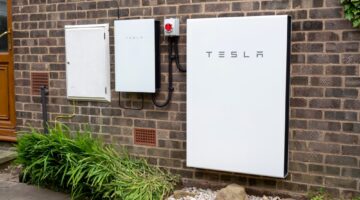
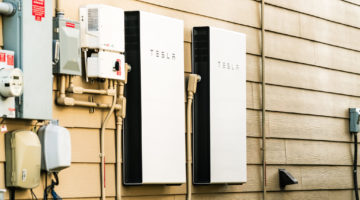
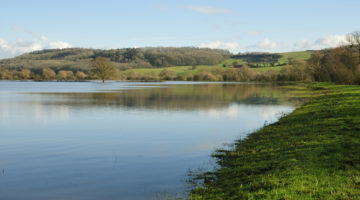
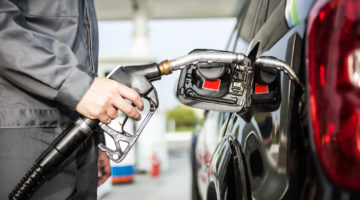





No Comments yet! Be the first one.